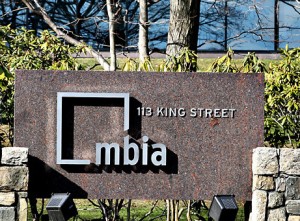
During the boom years, Armonk-based insurance company MBIA offered insurance for the biggest financial firms in the nation. It provided coverage for residential mortgage-backed securities for the likes of Bank of America, Morgan Stanley and Merrill Lynch.
But then the subprime mortgage crisis hit ”“ leaving MBIA on the hook for billions in insurance claims.
In a “mortgage securitization,” mortgage loans are acquired, pooled together and then their securitization certificates are sold to investors. Payments from mortgage loan borrowers in these pools are used to pay investors. MBIA steps in when too many borrowers default and there is not enough money to pay investors.
So far, the insurance company paid out some $4 billion ”“ and counting ”“ in these claims. MBIA has since filed lawsuits against these financial companies. It argues they intentionally engaged in fraudulent activities and many mortgage borrowers in these pools of securities were low-quality borrowers who were likely to default. In five separate lawsuits against different financial firms, MBIA is alleging fraud claims as well as breach of contract claims.

“This is a good example of how intertwined financial services are ”“ this example illustrates everything from the failure of individuals to meet their mortgage payments to the role of lenders to underwrite properly,” said Peter Kochenburger, executive director of the Insurance Law Center at University of Connecticut School of Law in Hartford, Conn.
And it affected everyone in the process. During the boom years, some loans that banks made were questionable, Kochenburger said. “I mean sometimes they were given to people without verification and without a proper credit check.”
Billions of dollars at stake
If MBIA is successful, it could get back every dollar it paid out for insurance it provided for residential mortgage-backed securities.
In latest legal developments, a New York judge on June 1 reversed her earlier decision and dismissed MBIA”™s fraud claim against Credit Suisse, a setback for the insurance company. An MBIA spokesperson said the company plans to appeal the decision.

MBIA got better news in its case against Morgan Stanley. On May 26, another New York judge allowed MBIA”™s fraud claim against Morgan Stanley to proceed. So far, in four out of five cases, MBIA has been allowed to continue its assertion that financial firms engaged in fraudulent activities, leaving MBIA to pay for their wrongdoing.
“MBIA alleges that there were inordinate defaults under the loans and it retained a third-party consultant to review them for compliance with Credit Suisse”™s representations and warranties,” according to a June 1 ruling by New York state Supreme Court Judge Shirley Kornreich. “The consultant determined that out of a sample of 1,386 defaulted loans ”¦ breaches had occurred in 87 percent of them.”
MBIA argues that Credit Suisse made “materially false statements and omitted material facts in email communications with MBIA with intent to defraud,” the ruling said.
And in the May 26 ruling by Westchester County Supreme Court Judge Gerald Loehr that allowed MBIA”™s fraud argument to continue against Morgan Stanley, the judge wrote, “It is now well known that during the 1990s and continuing well into the first decade of the 21st century, banks, insurance companies and rating agencies operated in an atmosphere of irrational exuberance.”
MBIA, Loehr also wrote, asserts that “as a result of fraud on the part of Morgan Stanley and its affiliates, it was caused to misunderstand and underestimate the substantial risks it was insuring. MBIA charges that Morgan Stanley provided low-grade collateral, misrepresented the individual and pooled mortgage loans characteristics and procured inflated credit rating.”
On the other hand, the judge observed, Morgan Stanley and other financial firms say that the lawsuit is “simply an effort by MBIA to avoid the very risks that it had been paid large fees to undertake.”
MBIA emphasizes that despite the mortgage crisis, it has made good on every insurance claim it received.
“Despite the substantial damage that has been done to our balance sheet, no holder of a bond we insured has failed to receive a single payment of interest and principal,” MBIA CEO Joseph Brown stated during a Feb. 16 testimony at the New York State Assembly. “We have met our obligations and honored every claim that has been presented to us, and we”™ve done it without reliance on a single dollar of taxpayer-funded bailout money.”


















Mr. Brown has done a phenomenal job in protecting everyone’s respective interests and he deserves a thank you from all concerned. Ultimately the shareholders will be a very happy group for staying with MBI during these difficult times.
The Article 78 Case will put MBI back in the forefront of this industry –be patient.
see its always the big guy with the money that sues. what about the homeowners. where are we in this equation. so its ok for a bank to hire an appraiser strong arm the appraisers to come in at or above property value. underwriting not do any research on these appraisals although some homes sold for more then asking price (strawbuyer) or a home bought and sold with in 6 months (flipping) in normal situations underwriting will throw out those comps and go further away from the subject home to find property vslue. by the banks securitizing these loans they did nothave to do the extra work becuase they were not holding these loans for 30 years and if the homeowners defaulted the home just gets paid for a win win situation all the way around for the preten i just dont see how the pretender lenders were able to get away with lieing on our notes and mortgages. how we were not privy to securitization and our mortgages were being played on the stockmarket and then there was insurance on them so it was better for us to befault. where is our help noen of us have money to fight like these big insurance companies. this is an insane fight.